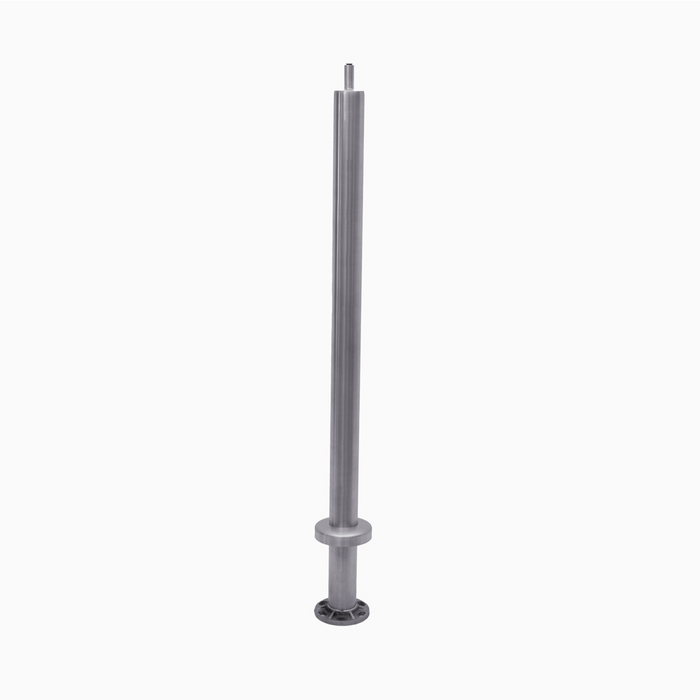
Round Post (3mm) - Angled or Horizontal Balustrade - Plain - Satin
per Piece (Incl. GST)
 Made to Order (2 week lead time) Made to Order (2 week lead time) |
 Ships from Brisbane Ships from Brisbane |

per Piece (Incl. GST)
 Made to Order (2 week lead time) Made to Order (2 week lead time) |
 Ships from Brisbane Ships from Brisbane |
Description
Where would you normally use a stainless steel post?
To structurally support a balustrade on a deck, balcony or staircase, in particular, wire cable or glass.
What is the difference between a post for Flat Balustrade and Angled Balustrade?
The saddle used for the Flat Balustrade posts, does not pivot, whereas the ones used for the Angled Balustrade posts does pivot.
The Angled Balustrade posts can be used for horizontal and angled balustrade (ie. like on a staircase); whereas the Flat Balustrade posts can only be used for horizontal balustrade.
Which saddles go with this post?
Any of the saddles that in the description say they are used for Angled Balustrade Posts. A screw is supplied to fix the saddle onto the top of the post.
Why are some posts 1.6mm and others are 3.0mm?
This refers to the wall thickness of the post.
In most cases, the 1.6mm wall thickness will be enough for use on corner, end and intermediate posts with glass balustrade.
For wire balustrades, you may want to consider going with the heavier 3.0mm wall thickness; particularly in the case of a free-standing end post where the correct legal tension required for the wire cable could cause the post to distort. For intermediate and corner posts; the 1.6mm wall thickness is usually enough.
What is it made out of?
316 Stainless Steel in a Satin Finish.
How should you fasten it to the ground/deck?
Due to the large number of surfaces that the post could be fixed to, we do not supply any fasteners.
We suggest that you speak to a local hardware store for more info.
Without regular cleaning and maintenance discolouration of the surface of the stainless steel by corrosion (tea staining) can occur.
How to reduce the risk of tea staining
Stainless steel cleaning schedule
The frequency of cleaning will vary depending on environmental factors i.e. proximity to the ocean, atmospheric and urban conditions. Below is intended as a guide and should be varied as required. We recommend using peek stainless steel polish for maintenance.
| Environment | Distance from Coastline | Cleaning Schedule |
|---|---|---|
| Clean inland environment | 20km + | Every 10 - 12 Months |
| Moderate urban or coastal environment | 1-5km | Every 4 - 6 Months |
| Harsh urban or coastal environment | < 500m | Every 2 - 3 Months |
| Severe coastal/ marine environment | < 500m | Every 1 - 2 Weeks |